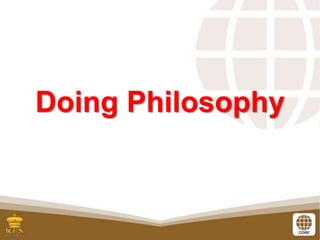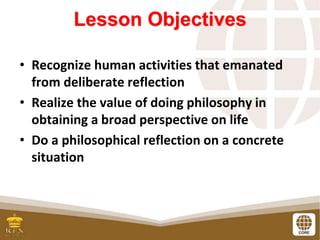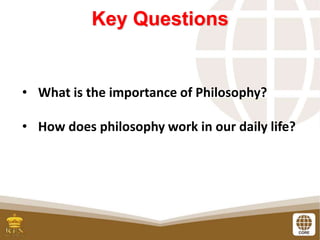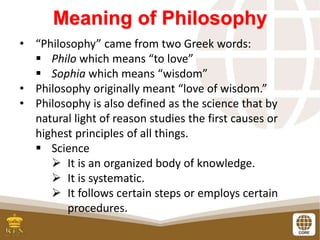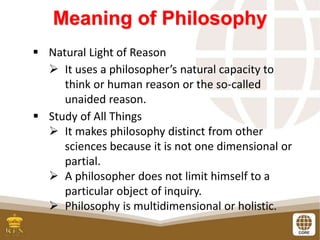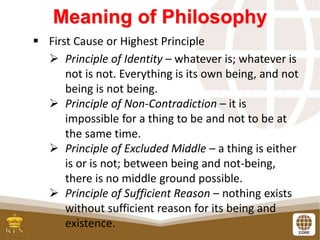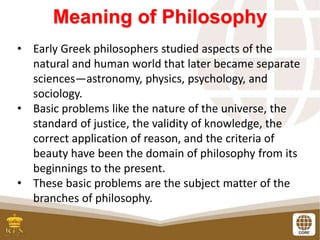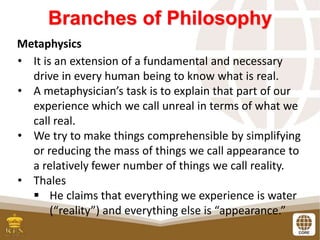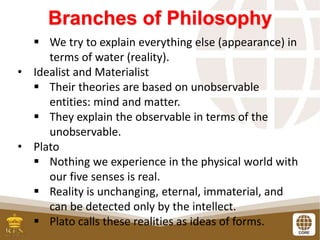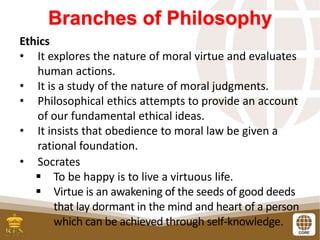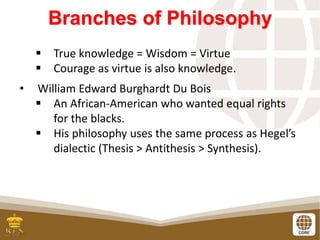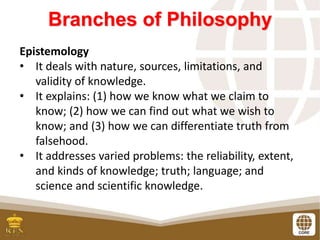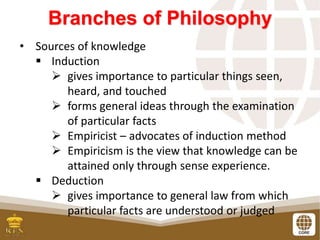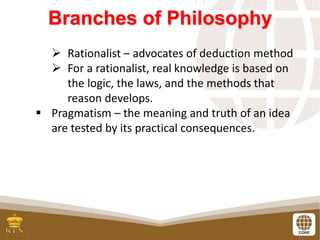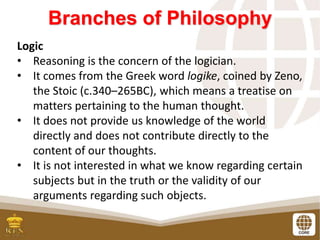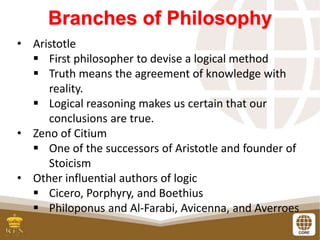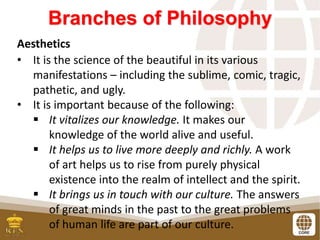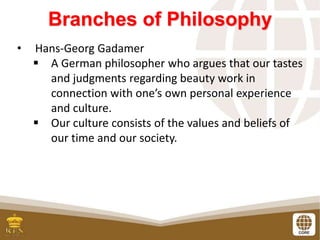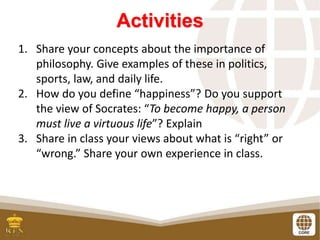This document discusses the meaning and branches of philosophy. It begins by defining philosophy as the love of wisdom and the study of fundamental principles through reason. The key branches of philosophy are then outlined as metaphysics, ethics, epistemology, and logic. Metaphysics explores reality and existence. Ethics examines morality and virtue. Epistemology considers the nature of knowledge. Logic concerns valid reasoning. Aesthetics, the philosophy of beauty, is also briefly mentioned. Examples of influential philosophers are provided for each branch, such as Plato in metaphysics and Aristotle in logic. The document concludes with discussion questions about the importance and meaning of philosophy.
